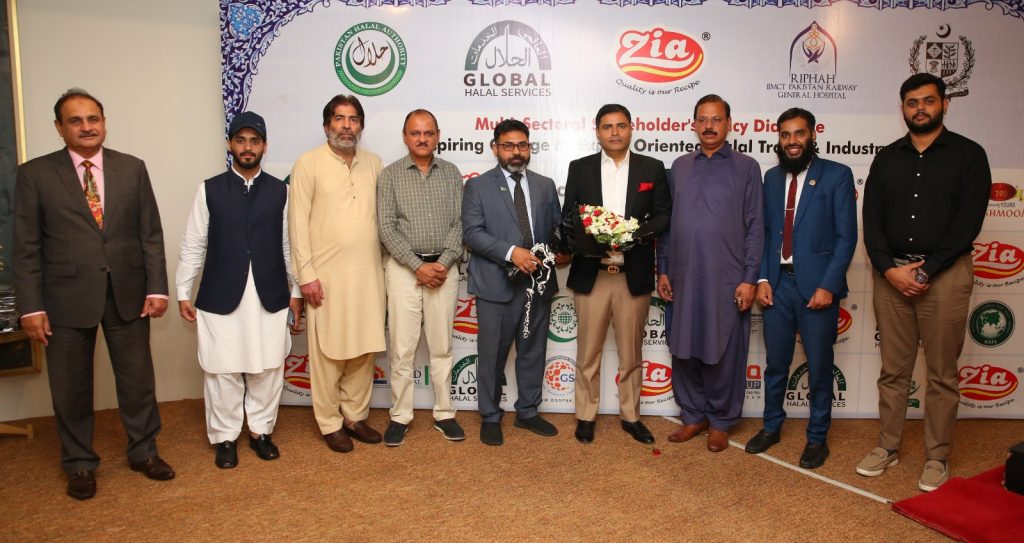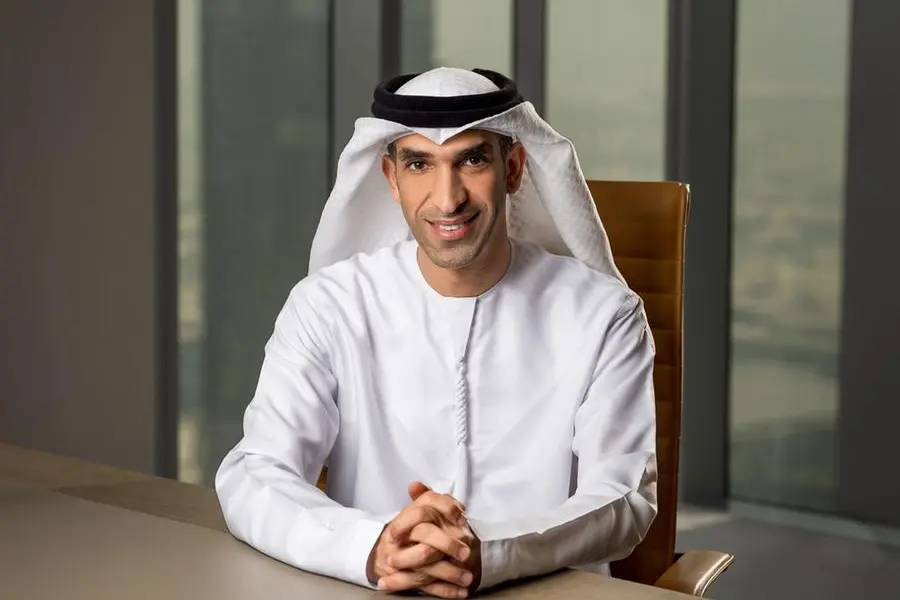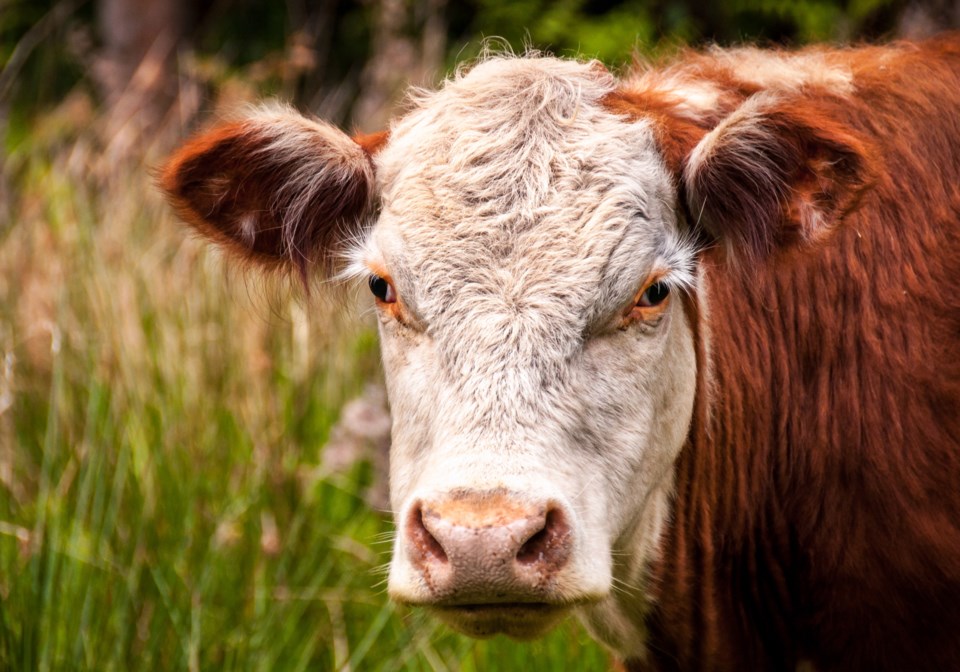The Financial Daily International
Halal products are moving into mainstream business and their demand is steadily increasing. It is now seen as a potential engine of economic growth. Pakistan can assume a leadership role in global halal food market, being a Muslim country, provided proper strategies are put in place.
What is Halal? Halal means “permissible” in Arabic. It is often extended to “halalan thoyyiban” meaning halal and wholesome, as compared to unwholesome, foul or ‘haram’ meaning prohibited. All pure and clean foods are permitted for Muslims except (1) carrion or dead animals; (2) blood;
(3) swine including all its by-products; (4) alcohol; (5) animals slaughtered without pronouncing the name of God on them.
Agha Sohail Asif
Dy. General Manager, EPZA
The halal products are moving into mainstream business and their demand is steadily increasing. It is now seen as a potential engine of economic growth. Pakistan can assume a leadership role in global halal food market, being a Muslim country, provided proper strategies are put in place.
 Demand for ‘halal’ foods is increasing, not only in the USA, Europe and Canada, but also in the Middle East, Southeast Asia, and North Africa and Australia. Halal consumers market / trade are growing fast in the world. According to Pew Forum on Religious and Public life, the estimated (i.e., in 2010) total Muslim population has become 1.8 billion which constitutes 28% of the total Global Population of 6.8 billion. Of them, over 60% live in Asia, one fifth in the Middle East and North Africa. Some 400-600 million Muslims live as minorities in other regions. In Europe, there are an estimated 38.1 million Muslims. One million live in Canada whereas estimated 8 million Muslims live in USA.
Demand for ‘halal’ foods is increasing, not only in the USA, Europe and Canada, but also in the Middle East, Southeast Asia, and North Africa and Australia. Halal consumers market / trade are growing fast in the world. According to Pew Forum on Religious and Public life, the estimated (i.e., in 2010) total Muslim population has become 1.8 billion which constitutes 28% of the total Global Population of 6.8 billion. Of them, over 60% live in Asia, one fifth in the Middle East and North Africa. Some 400-600 million Muslims live as minorities in other regions. In Europe, there are an estimated 38.1 million Muslims. One million live in Canada whereas estimated 8 million Muslims live in USA.
The global halal food market valued at US$ 635 billion in 2010 according to Halal Journal, a Kuala Lumpur based magazine as well as Islamic Food and Nutrition Council of America. It is about 16% of the total global food industry. The American halal market is estimated at US$ 17.6 billion. Besides Muslims, other segments of population have also joined the rank of halal consumers. Non-Muslims also like halal foods because of its safety and sanitation features i.e., less likely to be cross-contaminated. The demography of Muslim population and increasing interest of non-Muslims makes the halal products as an excellent business / economic opportunity for manufacturers of halal products worldwide. Besides the fast growing financial sector, halal products and services like cosmetic, hotels, fashion and insurance, which comply with Islamic law and teachings of the Koran, is well over US$ one trillion a year.
Over the last 30 years many halal markets such as ethnic stores and restaurants have sprung up in major metropolitan areas to cater the needs of Muslim population. In the past Muslims businessmen slaughtered their own animals but the concept of halal certification was foreign to them. Halal certification has become popular for domestic products as well as for exports specifically from non-Muslim countries. Foods and beverages bearing halal certification are readily accepted by Muslim consumers, as well as customers of other religions, provided the certificate is issued by reputable certification body. The need for common seal of certification has become necessary for the facilitation of Muslim consumers.
What is Halal?
Halal means “permissible” in Arabic. It is often extended to “halalan thoyyiban” meaning halal and wholesome, as compared to unwholesome, foul or ‘haram’ meaning prohibited. All pure and clean foods are permitted for Muslims except (1) carrion or dead animals; (2) blood; (3) swine including all its by – products; (4) alcohol; (5) animals slaughtered without pronouncing the name of God on them.
Food processors should be aware of the followings common food ingredients and there sources before making halal foods: food additives; amino acids; animal fats and protein; colours; dressings, sauces and seasonings; emulsifiers; enzymes; fats and oils; fat based coatings, grease and release agent; flavors and flavorings; gelatins; glycerin; hydrolyzed protein; meat and its by-products; packaging materials; stabilizers; thickening agents; vitamins and whey protein. When processing halal products, it is necessary to eliminate all contaminations with non-halal ingredients.
In halal business, there is also a Corporate Social Responsibility for the promising owners, their managers, employees, suppliers and regulating authorities that the business is committed to purity, cleanliness and honesty in everything it does.
Trends and Players:
The halal food industry is quite unique in the sense that it is the largest industry where religious values are upheld during the production and distribution. By definition itself, it is a product permitted to be consumed only when it is not against the Shariah – Islamic law. Multinational like Nestle and Unilever have been marketing several products that meet the halal standard. Halal accounts for 16% of the global food market, according to world halal forum based in Malaysia. The European halal food market has reached US$67 billion in 2010. The halal segment is growing faster within global food market.
Food companies in several European countries have already adapted to the needs of the muslims customers. In France, the market sentiments for halal foods sales was set to 5.5 billion Euros (US$7.42 billion) in 2010 i.e., a move “from the ethnic market to mass market’. France’s estimated five million strong Muslims population is the main attractions for the retailers and restaurateurs operators. The market researchers say it is growing.
The Governments in Asia and Middle East are pouring millions of dollar and efforts to become regional hubs for tailor made halal foods manufacturing centre and “halal logistics” system to maintain the product purity during shipping and storage. The increased competition has brought changes in manufacturing and supply chains facilities in some unusual places. Most of the Saudi Arabia’s chickens are raised in Brazil which means Brazilian suppliers have build elaborate slaughtering facilities. Abattoirs in New Zealand are the world’s biggest exporter of halal lamb. This firm is expanding its business to Iran and Malaysia. Netherland is keen to maximise the Rotterdam’s role as Europe’s biggest port. They have built halal warehouses for imported halal goods to avoid storage next to pork or alcohol.
Drug companies such as U.K’s Principle Healthcare and Canada’s Duchesnay now sell halal vitamins free of gelatins and other animal derivatives that some Islamic scholars say make mainstream products ‘haram’. The Malaysia-based company Granulab produces synthetic bone graft material to avoid using animal bone while scientists are working to create halal meningitis vaccine.
The Islamic Banking prohibits charging of interest because it is not permitted in Islamic law. Many scholars discourage investment in excessively leveraged companies. It currently accounts for just 1% of the Global Market. The quantum of Islamic Finance Industry is growing at around 15% a year and it could reach US$ 4 trillion in five year according to Moody’s Investors Service – report 2008.
Those who define halal market, in the traditional sense as a matter of meat, are misconceived. The present trend of halal market is more bullish. The halal products are moving into mainstream business and consumers are looking for high quality, ethical products. Those firms who comply with Shari’a code as well as religious laws claim that they do have non-Muslim customers. The first Islamic hotel was established in Dubai by the name of Al- Jawhara Hotels. It is an Arabian Gulf chain run by the Shariah- Compliant, Lootah Hotel Management Company. 60 % of their clientele are non-Muslims due to hotel serenity and family – friendly atmosphere. Dutch based Company Marhaba sells cookies and chocolate. Quarters of their customers are non-Muslim because of food safety.
Swiss food giant Nestle is a pioneer in the field. The company had set up halal committee way back in 1980?s. It had separated its halal and non-halal products. For non- food companies like South Korea’s L.G and Finnish cell phone giant Nokia are targeting muslim population. L.G offers applications to help users to find locations of Makkah while Nokia has free downloads of recitations from the Quran and maps showing the locations of major mosques in the Middle – East. Such offerings increase the brand loyalty, according the market research by the Finland – based Muslim lifestyle portal Muxlim.com. It further adds that “there is a lot of room for the mainstream brands to appeal to Muslims without making changes in their products.”
Halal Certifications:
The halal certificate is a document issued by an Islamic body, certifying that product meets the Islamic dietary guidelines, comprising but not limited to: the product does not contain pork or its by-products; the product does not contain alcohol; the product does not contain prohibited food ingredients of animal origin; the product has been prepared and manufactured on clean equipment. The meat and poultry components are from animals slaughtered as per Islamic law.
Over the years, the demand for halal certified products has increased. In order to meet this demand, companies throughout the world are seeking authentic halal certification to gain consumers confidence, expand their existing market and enhance their sales strategies. It is a matter of pride that non-muslims also like halal products because of their quality and hygiene. The opportunities for the business of halal products are on the rise but in most countries, halal certification is unregulated whereas in many Muslim majority countries there is no certification at all. The development of halal standard is, therefore, very crucial to address this problem.
Pakistani halal industry, as it begins to export its products, will have to develop Sharia – Compliant Standards i.e., based on authenticity of the certification body, technical requirements of productions and processes of halal products, creating awareness among all stakeholders, Government to Government collaboration for facilitation and development of common seal of authentication. This aspect needs to be addressed on top priority for successful marketing of halal products. The halal logo will then be authentic, independent and reliable testimony of halal food claims.
Prospects For Pakistan
Pakistan is blessed with all seasons, fertile land and 48% dedicated agricultural work force. Agriculture sector contributes 24% to GDP. About 60% of population is associated with production, processing and distribution of food. Agriculture & animal husbandry sectors produce basic food items and unprocessed materials for various finished goods. The surplus cereals, fruits, vegetables, milk, fish meat and poultry can be processed, as a value added products, for marketing locally and abroad.
Being a Muslim and agrarian economy, Pakistan is in the advantageous position to secure a significant share in the halal market if steps are taken in the right direction. But incidentally it has no presence, as yet, in the halal economy which essentially caters to the faith – related needs of Muslim consumers worldwide. The local food manufacturers lack awareness about the magnitude of global halal market. They think halal in terms of chicken and meat only and not beyond. They need to catch up with missed opportunities inherent in growing global halal market of US$635 billion.
Setting Up EPZ for Halal Products.
EPZA was established in 1980 with the mandate to make all arrangements for planning, development and management of the zones and to provide matter connected therewith or ancillary thereto. Its first project was established in Karachi. It has an excellent infrastructure with uninterrupted power, gas and water supply. Secured and environment friendly atmosphere. Off-shore banking units, offices of Clearing/forwarding agents and availability of abundant skilled and educated work force etc. In-fact it has all the potential facilities required for any industrial enterprise.
For better facilitation, EPZA has established one window facility with simplified procedure. A good package of exemption is available to reduce the cost of doing business. Over the last thirty (30) years, EPZA has developed enough experience/skill to manage facilities and develop capacity to promote manufacturing/processing industries. The scope and magnitude of the halal market provides the excellent opportunities to Pakistan being a Muslim country. These opportunities will become cost effective if manufacturer/processors set up their units in EPZ where certain exemptions are available for them. By virtue of its experience, EPZA can play leading role in developing the exclusive EPZ (halal Parks). The real innovation in creating halal parks will be to bring together ideas, concepts and practices. In the proposed halal parks the manufacturers/processors/traders of Meat, Pulping and Preservation of Fruits/Vegetables, Dates Products, Milk and Dairy products and prepared foods will avail cleaner industrial area, pollution free environment, availability of and accessibility to raw material and ingredients ( from local/foreign market), inter-company linkages and liaisons, consolidated services under one window operation by EPZA. The outcome will be production of halal products which is safe, hygienic, wholesome of high quality and trustworthy. In conclusion, private sector of Pakistan can take the advantage of both availability of raw material and access to utilization of latest manufacturing equipments at the affordable cost, if they setup their industrial units in EPZ’s where certain fiscal exemptions are available to reduce their cost of doing business. The halal logo will provide 100% profit of greater market share. The consumers will not only be Muslims but also non-Muslims due to safety, hygiene and quality. The future lies in export of halal products and services in the emerging global market of US$635 billion.



